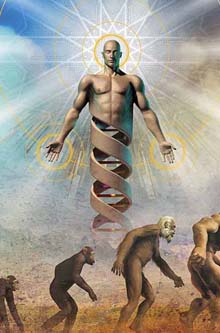Posted to give glimpses of international interest in ID. Korea appears to allow significant freedom of speech and inquiry.
———————————-
Special Contribution By Babu G. Ranganathan
The Seoul Times, Global Views Jan 28, 2008
 |
| Understanding Intelligent Design Theory |
Imagine finding a planet where robots are programmed so that they can make other robots just like themselves from raw materials.
Now, imagine an alien scientist visitor coming to the planet and, after many years of studying these robots, the alien scientist visitor comes to the conclusion that since science can explain how these robots work, operate, function and reproduce there’s no reason to believe that there was an ultimate intelligent designer behind them.
The analogy above certainly is not perfect but it is sufficient to reveal the fallacious thinking of those who attack intelligent design behind life and the universe. . . . The sequence of molecules in DNA (the genetic code) determines the sequence of molecules in proteins. Furthermore, without DNA there cannot be RNA, and without RNA there cannot be DNA. And without either DNA or RNA there cannot be proteins, and without proteins there cannot be DNA or RNA. They’re all mutually dependent upon each other for existence! . . .
See full article at The Seoul Times, Global Views, Mon. Jan 28, 2008